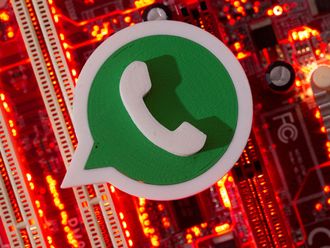Santa Clara, California: Intel Corp plans to launch an internet television service this year with live and on-demand content, entering a hotly competitive race as its core PC business erodes.
Shifting into an unfamiliar and potentially costly market in which Intel lacks experience and relationships, Erik Huggers, vice-president and general manager of Intel Media, said he is negotiating with content providers. He said hundreds of Intel employees and their families are already testing a set-top box the company will sell as part of the service.
Intel’s move puts it into competition with heavyweights like Apple, Amazon and Google that believe the $100 billion (Dh367 billion) cable television ecosystem is ripe for change.
The chipmaker plans to offer consumers smaller bundles of content than those currently offered by cable operators, Huggers told the AllThingsDigital “Dive into Media” conference. Asked if Intel has inked any content deals, Huggers said he is working with providers and is confident Intel will have a compelling product to launch this year.
“We have been working for [the past] year to set up Intel media, a new group focused on developing an Internet platform,” Huggers said. “It’s not a value play, it’s a quality play where we’ll create a superior experience for the end-user.”
Intel has struggled to get its virtual television service off the ground due to unwillingness on the part of major media content providers to let the company unbundle and licence specific networks and shows at a discount to what cable and satellite partners pay, according to sources.
Silicon Valley has been taking aim at the US cable television market — dominated by major distributors such as Comcast and DirecTV Group and programme makers like Walt Disney Co and Time Warner Inc Technology companies see opportunities due to reasons ranging from shifting viewer habits to mounting programming costs.
A step beyond
Intel’s plan, if successful, would go further than products currently offered by Apple, Amazon and Netflix by offering live programming as well as on-demand content. “There is an opportunity to offer a bundle that can be curated by the consumer, an opportunity to create smarter bundles,” Huggers said.
Intel’s set-top-box will also have a camera that could be used to automatically steer content and ads toward specific users. “There’s a scenario where the TV recognises that it’s you and says ‘Hey, I know what you like. I know what you want to watch’, versus the environment we’re in today where the TV literally is not interested in you at all,” Huggers said.
Some media executives are sceptical that Intel will be able to convince content providers to agree to terms that are attractive enough to make its service viable. That view was shared by Bernard Gershon, head of digital consultancy GershonMedia and a former Disney senior vice-president for strategic planning who helped develop Disney’s online strategy.
“The chance that Intel launches is zero,” Gershon said. “They haven’t cut any deals with any content companies, and they are not offering something that differentiates itself enough on service or price to get the deals done.”
Analysts see Intel’s leap into internet television, along with its growing focus on smartphones and tablets, as a way to diversify beyond the slowing PC market.
“The question you have to ask with Intel is, Is anything they do big enough to move the needle?” said Stacy Rasgon, an analyst at Sanford Bernstein. “You’re not going to make or break the company on something like this.”











